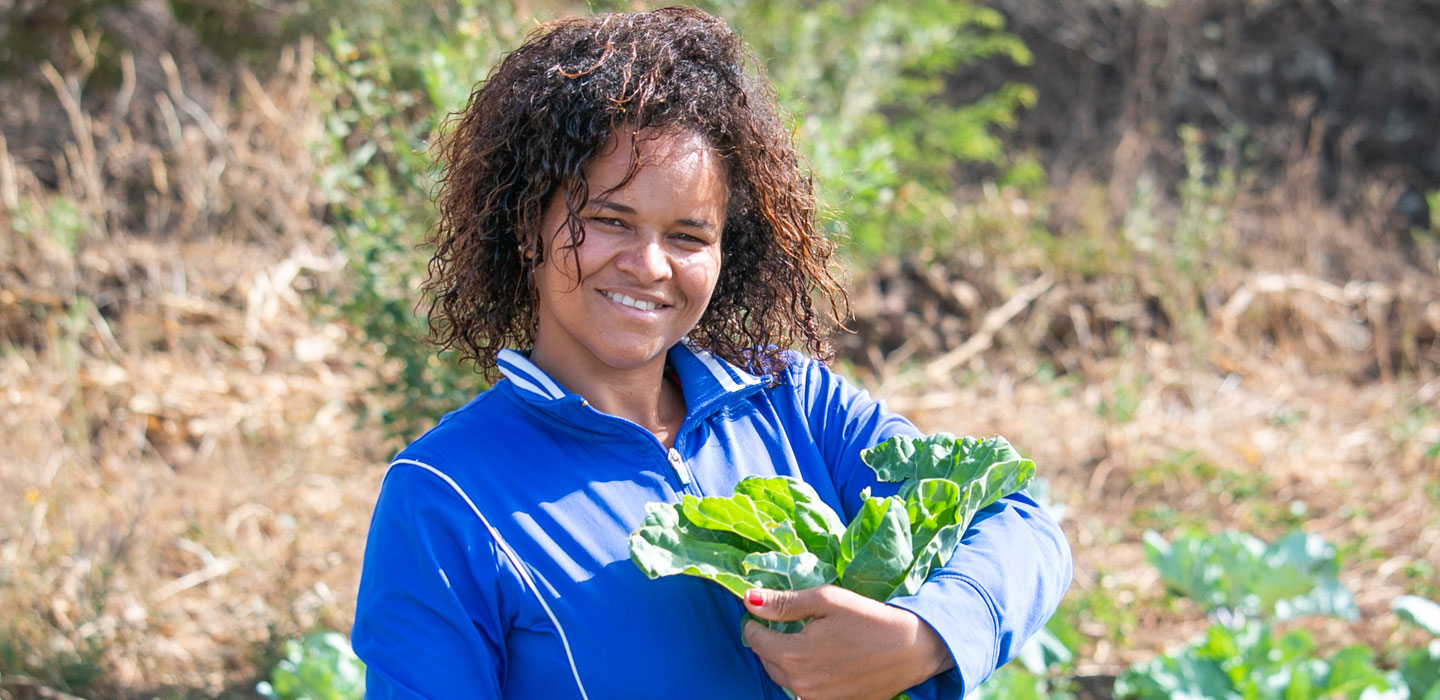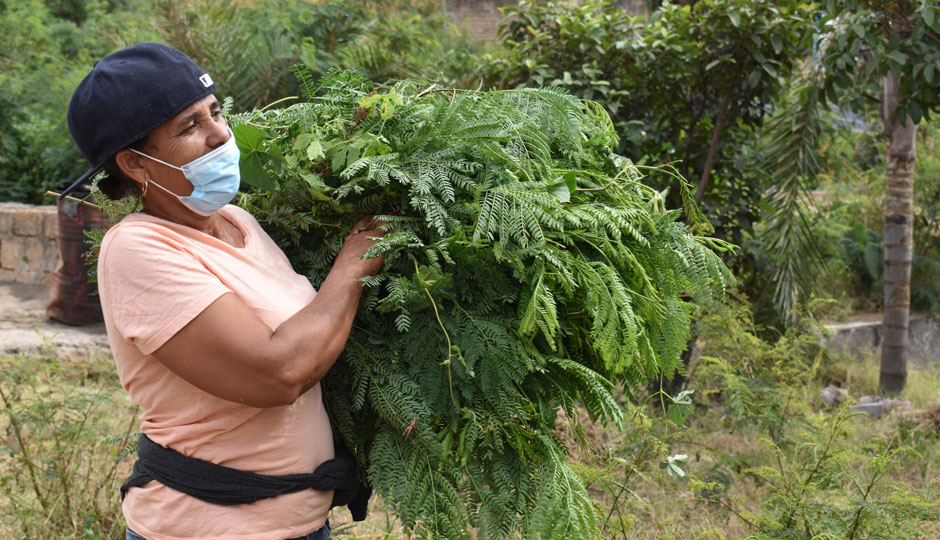The power of options
IFAD Asset Request Portlet
Asset Publisher
The power of options
Estimated reading time: 3 minutes
Like other women on Santiago, the largest island of Cabo Verde, Maria Lizita Varela used to rely on sand extraction as a source of income. It was thankless, dangerous work.
“We have to go deeper into the sea nowadays,” she recalls. “We go over where water reaches our head. We can spend as much as three hours in the water with sand getting into our eyes, mouth, ears. Oftentimes, I felt like I might drown.”
Despite the dangers, sand extraction produces an average monthly income of only US$110. Many women thus have to rely on their partners and families for housing and other basic needs. And due to a range of other infrastructural and institutional obstacles, job opportunities in other industries such as agriculture are extremely limited. With no other real options, many women turn to selling sand as a livelihood. But these circumstances perpetuate poverty, increase women’s vulnerability, and reduce their ability to make their own choices about their lives and roles and society.
The negative environmental impact of sand extraction is palpable, too. In addition to making extractors venture farther and farther into the water to reach viable sand, the erosion caused by repeated extraction leads to frequent flooding in residential areas during high tide. Recently, a regulatory framework has been put in place to try to limit these impacts – but its application is deficient, and it does not offer alternative income sources to the vulnerable and poor households who depend on this work. As a result, the framework only adds the threat of legal repercussions to the dangers that extractors already face.
Now, an IFAD-funded project on the islands of Santiago and Maio is offering women opportunities for better incomes through safer and less time-consuming activities. The POSER project, part of a larger IFAD-funded programme, is focused on helping rural organizations sustainably promote inclusive economic opportunities, as well as create the infrastructure and institutional conditions to make the existing opportunities sustainable.
In 2017, after the country experienced a three-year drought, the project shifted its intervention from grass-roots microfinancing to investing in infrastructural water mobilization projects as a response to the country’s development strategy and policy for its agricultural sector. This expanded the economic opportunities available to people taking part in the project, particularly in the area of agricultural production.
The men, women and young people in the project’s target areas now have more options. In particular, women like Maria Lizita now have alternatives to the dangerous and unstable job of collecting sand.
Edzana Mascarenhas, POSER’s officer responsible for gender equality and participation, says that creating these alternatives has allowed many women to invest in going back to school, save for health emergencies, move out of family households, and provide for their own housing.
The women involved in this project now have the chance to become the decision-makers, job creators, business owners. Their stories are an opportunity for all of us to learn how to do more.
Maria de Fatima, from Ribeira da Prata, got financing through POSER to open up a business selling bread and cookies. Today, she employs two workers and can barely respond to the market demand for her production. “My dreams are still not fully realized,” she says. “I want and can accomplish more. POSER made the first step towards that possible. I know other women that want the same – want to leave sand extraction and have something like I do, even smaller.”
Ana Maria Cabral from Ribeira da Barca doesn’t need to sell sand anymore. She’s now focused on agricultural production, an opportunity brought about by POSER. “Today I have a stable income. I can pay for all my and my children’s basic needs and plan my savings for emergencies,” she says. “Selling sand was dangerous and arduous. I would spend hours covered in sand and cold water only to get home and have to take care of all of my household activities and needs. Most of the time my return would be lower than US$50. Today, our life is different.”

In Moia-Moia, a settlement on Santiago’s east side, POSER has financed an infrastructural project that ensured the mobilization of water for agriculture production. Now that they are growing and selling produce, the women of Moia-Moia have seen their income increase by up to 300 per cent. Their household diet and nutrition has diversified. Their testimonies also account for their pride in providing for their household needs without negatively affecting their surroundings.
Vulnerable and poor households, particularly those headed by women, are often forced to follow risky coping strategies to meet basic needs such as food security or access to health services. IFAD-financed projects like POSER contribute to the creation of alternative income generating-activities that can lift people from poverty by promoting job opportunities. When these opportunities create spaces for women-steered leadership, the impacts of IFAD’s interventions spill over into job creation, investment in education, and family health.
Publication date: 08 March 2021